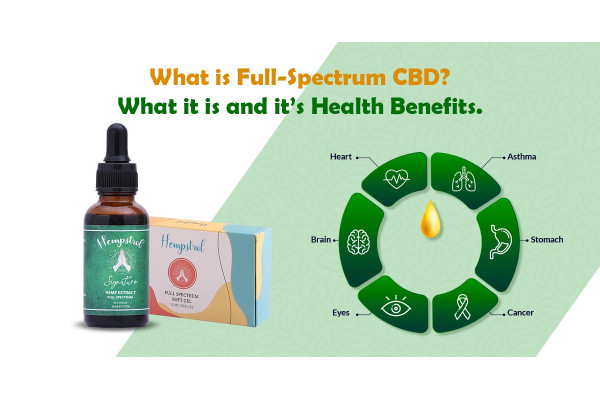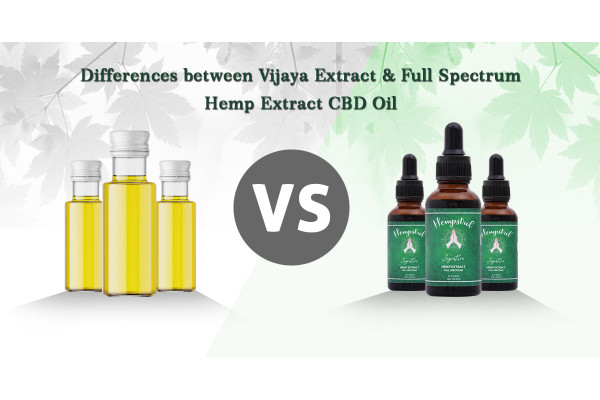A Guide On CBD Oil India: Its Various Types And Related Benefits
In this article, we will cover the different types of cbd oil India and their benefits. While there is no clear answer to which one is the best one, we will talk about the properties of each cbd oil in India type so that you can choose which one is right for you and your lifestyle.
With a number of unfamiliar words surrounding CBD oils, it is easy to get confused. You might have come across different CBD oil designations, such as full-spectrum CBD, broad-spectrum CBD, or CBD isolate.
.jpg)
Types of CBD
3 Types of CBD
CBD is largely derived from hemp, a type of cannabis sativa plant. CBD products can contain detectable amounts (no more than 0.3% by dry weight) of delta-9-tetrahydrocannabinol (THC), the compound in cannabis plants known for causing intoxicatingly psychoactive effects.
However, consuming CBD won’t get you “high.” Instead, CBD interacts with receptors in your body’s endocannabinoid system (ECS), which includes the brain and spinal cord, potentially calming the central nervous system, alleviating anxiety, improving sleep quality and/or reducing inflammation and chronic pain symptoms.
Understanding the differences between the three types of CBD—full-spectrum CBD, broad-spectrum CBD and CBD isolate—can help you choose the best type of CBD oil in India for your specific needs and preferences.
Full-spectrum CBD
It refers to a hemp extract that contains CBD and other compounds naturally present in the hemp plant, such as terpenes (compounds responsible for the way a plant smells). CBD, terpenes, flavonoids, essential oils and other cannabinoids contained in full-spectrum CBD products can work synergistically to create what’s known as the “entourage effect,” which some research indicates may increase the therapeutic benefits of CBD compared to when it’s used alone.Broad-Spectrum CBD
This is a hemp extract similar to full-spectrum CBD, with the exception that it typically undergoes an additional extraction process to remove all THC while leaving the remaining compounds naturally present in the hemp plant intact. With that said, testing reveals that some broad-spectrum CBD products retain minimal traces of THC, so it’s safest to refer to them as “nearly THC-free.”CBD Isolate
As the name suggests, CBD isolate, or pure CBD, doesn’t contain any THC or other compounds from the hemp plant. Unlike full-spectrum CBD and broad-spectrum CBD, CBD isolate cannot create the entourage effect because the extraction method isolates CBD from all other terpenes, cannabinoids and plant compounds naturally occurring in hemp. (1).jpg)
What does the research say about the benefits of CBD?
Research is ongoing to help understand how CBD works and what conditions it could help treat. Current research on CBD has found that it may help the following conditions:
Insomnia: Early research shows CBD may help improve sleep in people with insomnia.
Substance use disorders: Studies have found that CBD may reduce cravings for alcohol, opioids, and stimulants. It may also help lessen opioid withdrawal symptoms.
Inflammation: CBD seems to have a powerful effect on inflammation, which may make it useful for conditions such as rheumatoid arthritis.
Chronic pain: CBD may also help with chronic pain. Not only can it help the pain itself, it may also improve sleep and quality of life for people living with chronic pain. However, evidence for pain is mixed, and more long-term research is needed.
Nerve pain: A small study showed improvement in nerve pain symptoms with topical CBD. Early studies also show that oral CBD may help prevent nerve pain caused by certain types of chemotherapy treatment. More in-depth research on CBD and nerve pain is ongoing.
Anxiety: There’s some evidence to suggest that CBD can help reduce anxiety related to pain as well as social anxiety. A small study also showed that at certain doses, CBD may help with performance-related anxiety. But most of these studies are small and don’t look at long-term effects. So more information is needed.
Depression: Preliminary studies on CBD suggest that it could be helpful for depression. Like antidepressant medications, it appears to alter serotonin levels in the brain.
Psychosis: Early clinical trials show that CBD on its own (without any THC) may help lessen symptoms of psychosis. It also caused fewer side effects than most other antipsychotic medications. But more long-term safety data is needed.
Epilepsy: CBD is effective for treating seizures associated with certain forms of epilepsy that don’t respond well to other medications.
CBD is also currently being studied for other conditions, such as post-traumatic stress disorder, Alzheimer’s disease, and certain cancers. But as of yet, there’s no clear evidence — one way or the other — if CBD is effective for these conditions.
Also Read: How CBD Oil Enhances Physical Recovery
.jpg)
What’s the best dose of CBD oil?
There are no universal dosing guidelines on how much CBD oil you should take (except in the case of FDA-approved Epidiolex). Studies on CBD have looked at doses ranging anywhere from 16 mg to 1,000 mg.
For pain, a general dosing guideline is to start with 5 mg of CBD twice a day. You can then increase your dose by 10 mg every 2 to 3 days up to 40 mg a day. Research suggests that higher doses of CBD (300 mg to 600 mg) may be better for anxiety. More high-quality studies on humans are needed to identify effective doses for other conditions.
In general, experts recommend starting with a low dose of CBD and slowly increasing it over time. This helps you find the dose that works for you and helps lessen the chances of negative side effects. But remember to speak with your healthcare provider first. They can help you choose the right dose for your needs.
Also Read: Know The Miracle Of Cannabidiol Oil
 (2).jpg) What are the side effects of CBD oil?
What are the side effects of CBD oil?
CBD is generally well tolerated, but it does have some side effects and risks to be aware of. The most common are:
Fatigue
Diarrhea
Nausea and vomiting
Decreased appetite
Weight changes
These side effects are more likely at higher doses, and often go away with time as your body adjusts to CBD. But if they don’t, consider lowering the amount of CBD you’re taking. You can also talk to your healthcare provider for guidance.
In rare cases, CBD can cause your liver enzymes to go up. This seems more likely with high doses of CBD or when it’s taken with certain medications.
The package insert for Epidiolex states that CBD may also increase the risk of suicidal thoughts or behaviors, although this isn’t clearly understood. If you notice a negative change in your mood after you start taking CBD, contact your healthcare provider right away.
Also Read: Buying CBD oil in India? Here is the checklist to follow

Hello
My brother has been diagnosed with brain cancer. Wanted to know about CBD oil.
















%20(1)-600x450.jpg)





